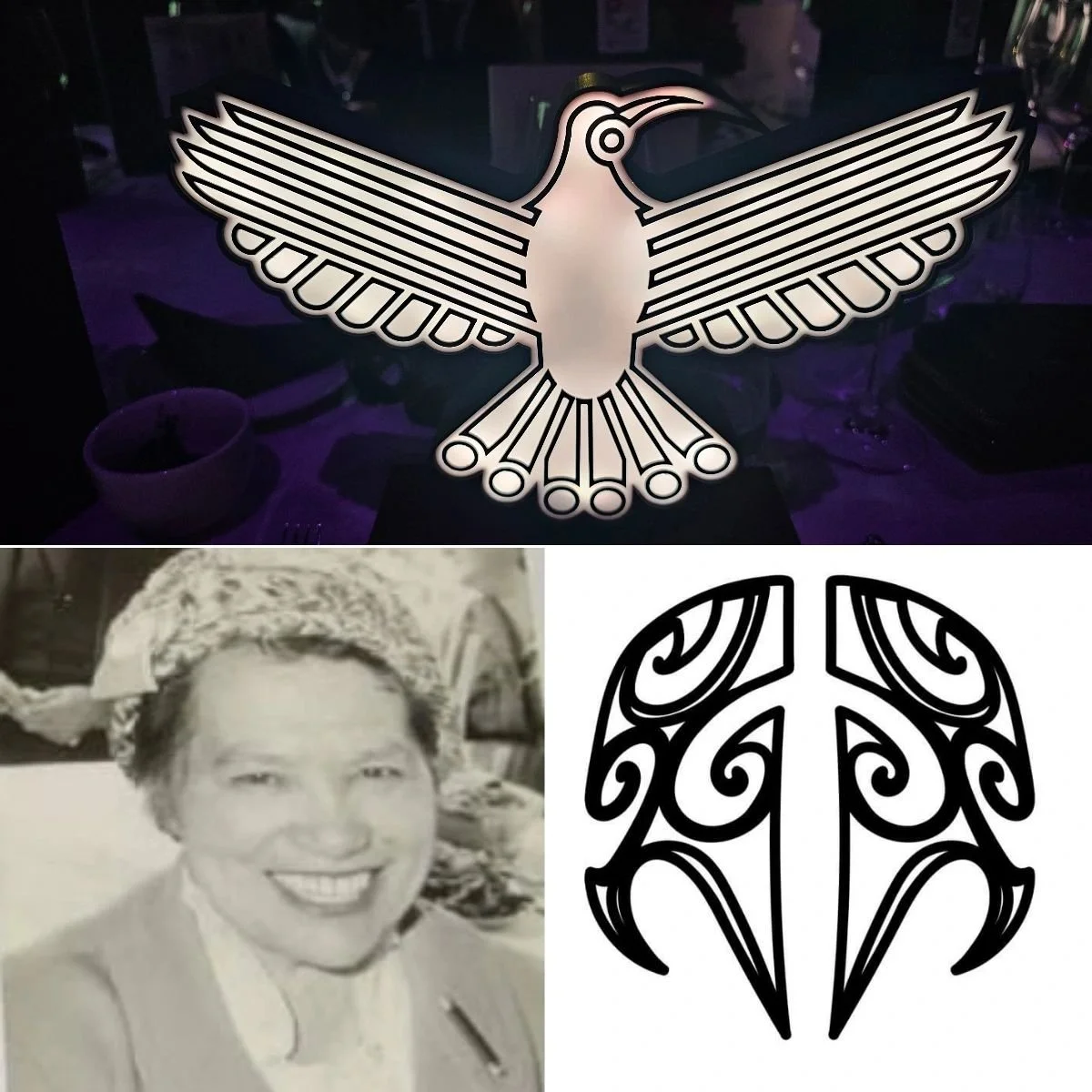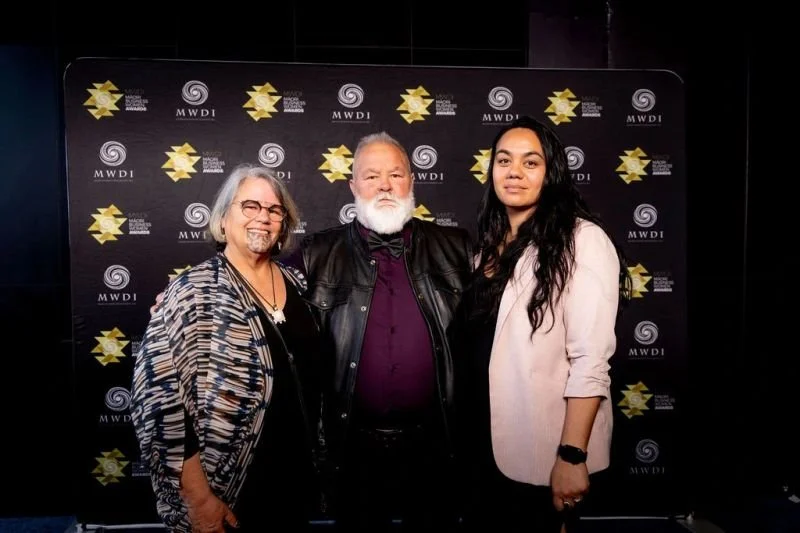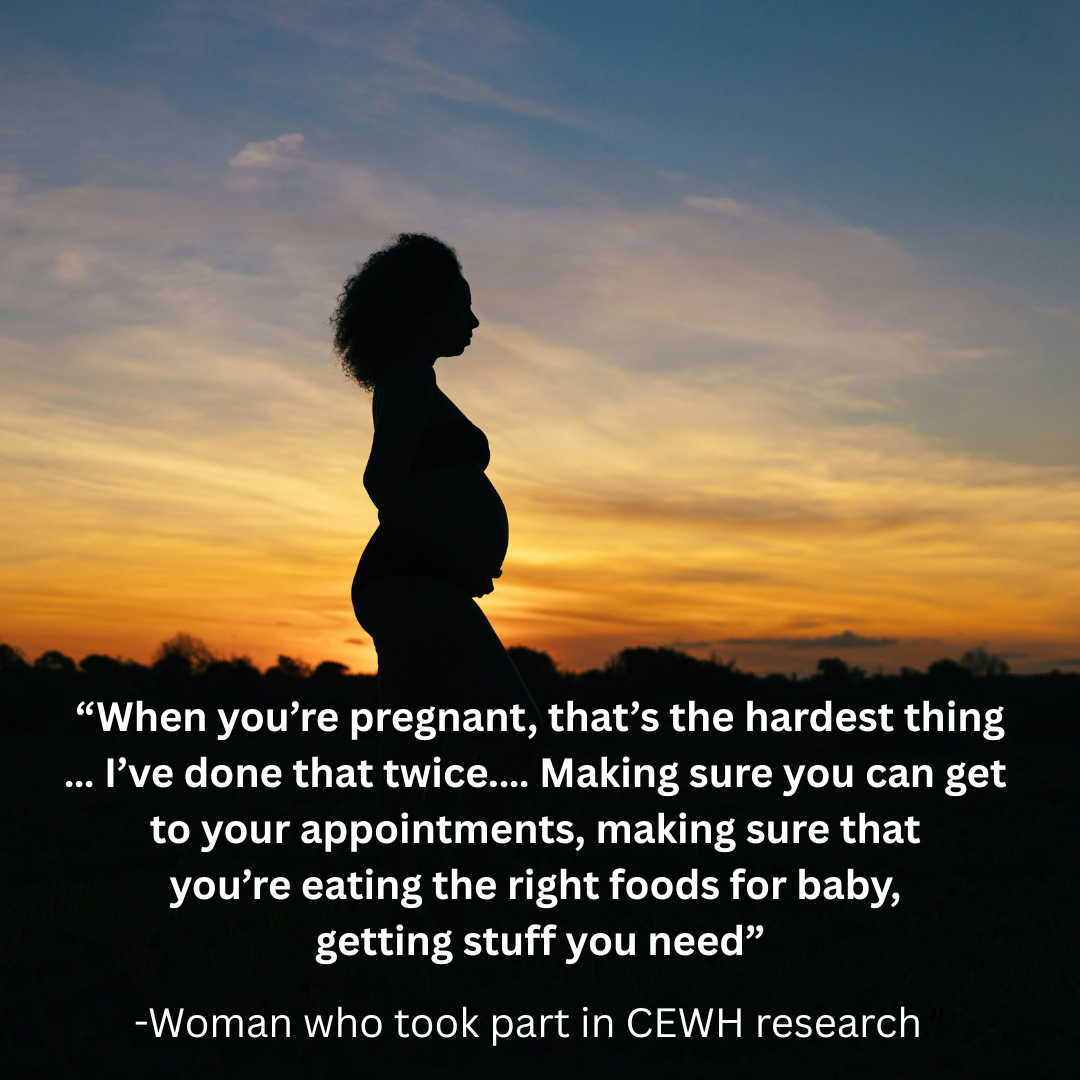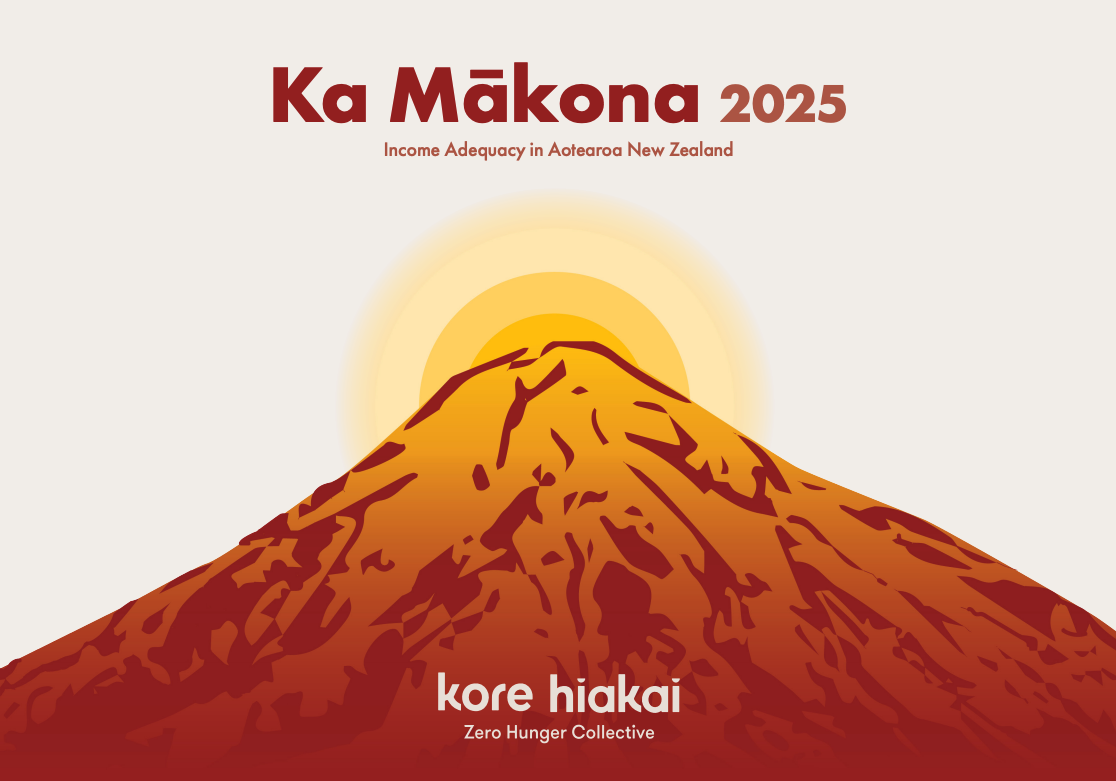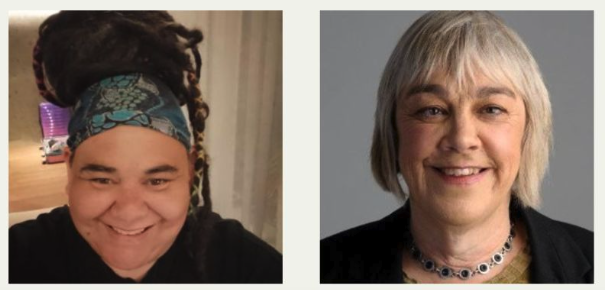November 2025 pānui
Taking time to reflect in Paihia, during the National Māori Housing Conference held in Waitangi last month.
Ma te kotahitanga e whai kaha ai tātau | In unity, we have strength.
This month, the team at Coalition to End Women’s Homelessness reflects on the power of kotahitanga - unity and collective action - in shaping solutions for women’s homelessness.
At the Te Matapihi 2025 National Māori Housing Conference in Waitangi, CEWH Kaihautū Dr. Kathie Irwin, Project Director Victoria Crockford, and Collective Action Lead Amanda Kelly witnessed firsthand how iwi, government, and community stakeholders came together to address housing challenges with purpose and passion. The conference showcased Māori-led innovation, whānau-centred approaches, and the strength of cultural infrastructure in creating lasting change.
The spirit of kotahitanga continues in our work at CEWH. Yesterday our webinar about Ngā Ara ki te Kāinga - Understanding Barriers and Solutions to Women’s Homelessness in Aotearoa brought together around one hundred people to explore key findings from our research into women’s homelessness.
By sharing knowledge, fostering dialogue, and taking collective action, we strengthen our ability to create safe, secure, and culturally responsive housing for wāhine across Aotearoa.
Nāku noa,
Victoria Crockford and Kathie Irwin,
Project Director and Kaihautū, Coalition to End Women’s Homelessness
WAKA HUIA
Introducing our Waka Huia
We’ve given our newsletter a refresh. You’ll see the section Waka Huia, which is our place to hold and share the special things that reflect CEWH’s work. We also have a section to highlight what’s happening around the sector and with our partners.
Our Waka Huia is also a new page on our website, making it easier to explore and access CEWH resources anytime.
If you’d like us to include any updates about your work in the newsletter, we’d love to hear from you - please email us at admin@CEWH.org.
Thank you to Kathie Irwin for sharing this photograph of her personal Waka Huia.
Kotahitanga at The National Māori Housing Conference
CEWH Kaihautū Dr Kathie Irwin (Ngāti Porou, Rakaipaaka, Ngāti Kahungunu) has shared her reflections from the Te Matapihi 2025 National Māori Housing Conference, held in Waitangi from 20–22 October, in her recent blog.
Hosted by Ngāpuhi in partnership with Te Matapihi, the conference brought together iwi, government, and community leaders to address housing challenges and drive Māori-led solutions.
Read Kathie’s full blog here for a deeper insight into the kōrero.
CEWH Lunchtime Learning webinar resources
Thank you to everyone who has joined our Lunchtime Learning webinars. We appreciate your engagement and the important conversations that continue after each session.
If you weren’t able to attend, or if you want to revisit the discussions, all webinar materials are available online:
Papatūānuku Paradigm with Kathie Irwin: resources here
Ngā Ara ki te Kāinga with Tanita Bidois and Callum Sleigh: resources here
These resources include recordings, slides, and supplementary materials to support further learning and discussion.
Congratulations to Kathie Irwin and Associates
We are thrilled to celebrate our Kaihautū, Kathie Irwin, and her whānau business, Kathie Irwin and Associates, winners of the MWDI Ikaroa Māori Women’s Business Award 2025.
Kathie’s grandmother established the brand - in 1914 she set out to indigenise cultural literacy with a focus on education.
Kathie shared the significance of the achievement:
“This is for you Grandma - your vision, your courage, the pathway you created through education for your descendants to follow. He mihi aroha! He taonga tō tauira.”
“She did this in 1914 when she chose education to future proof her pathway forward. Two and three generations later we are still with her, on her pathway, creating new futures through our work.”
We are inspired by Kathie’s dedication to education, whānau, and cultural leadership. Congratulations again to Kathie and her whānau for this well-deserved recognition!
Top: The MWDI Ikaroa Māori Women’s Business Award 2025
Left: Kathie’s grandmother
Right: The logo for Kathie Irwin & Associates, which was created by a graphic designer in collaboration with her daughter-in-law, Sam Irwin. It is based on Kathie’s moko kauae, a taonga created by Tā Derek Lardelli. The design incorporates three key themes: Koru (vision) – ‘E tipu, e rea’, to grow and flourish; Mangōpare (courage) – strength, tenacity, and determination; and Ngā hau e whā (taking knowledge to the world).
Family support was central at the awards, with Kathie’s brother Rokahurihia Cameron, Ruānuku, and her mokopuna Hurihia Luafitu joining her.
Victoria Crockford’s opinion piece in The Post - Homeless women and the law of unintended consequences
In recognition of World Homeless Day, The Post featured this powerful opinion piece by Victoria Crockford, Project Director at CEWH.
In her piece Victoria highlights the urgent need for gender-informed approaches.
“Women represent over half of those living unhoused in Aotearoa. 57,000 women, over one-third of whom are wāhine Māori, try to sleep at night, insecure about what the morning will bring for their living situation… Can they avoid the street for another night?” Victoria asks.
Victoria warns that recent government funding shifts, aimed at rough sleepers, risk leaving women - including those with children - without support.
Read more about Victoria’s opinion piece on the challenges women face and the solutions we urgently need in our blog here
Facing pregnancy without a home: what CEWH research reveals
Recent media coverage has highlighted the harsh and often unseen realities faced by pregnant women experiencing homelessness.
Some women who took part in our research shared that they lived on the street with their partners while pregnant and had to take additional safety precautions to protect themselves and their babies. Pregnant women living in homelessness also shared the struggles they faced in attending prenatal appointments and taking care of themselves.
One woman who was pregnant while living in cold and unsuitable housing was forced into emergency housing, however the toxic environment of these temporary housing complexes had a significant impact on her mental health.
Read our research here
Rangitoto Observer: Hauraki Corner death ‘reminder of homelessness impact on women’
A recent Rangitoto Observer article featured Coalition to End Women’s Homelessness Project Director Victoria Crockford, reflecting on the death of a woman at Hauraki Corner last month.
Victoria described the woman’s passing as:
“a painful reminder of how homelessness strips women of safety, dignity, and the simple comfort of a place to rest.”
The article drew attention to findings from the Coalition’s research and highlighted the growing number of women - particularly young mothers and older women - facing severe housing deprivation.
In the article, Victoria calls for a bipartisan housing and homelessness strategy.
“Organisations like De Paul House on the North Shore do brilliant work and urgently need the types of policies and funding that enable them to provide for women and families with wrap-around support. That requires a bipartisan strategy on housing and homelessness that strives to understand and meet the needs of women. We are nowhere near that right now,” she said.
Read the full article here on page 13
AROUND THE SECTOR
Women, children and babies facing homelessness
A recent article by David Long at Stuff highlights the growing issue of women and children experiencing homelessness on Auckland’s North Shore. Families are increasingly living in cars, overcrowded homes, or temporary arrangements, often hidden from public view.
De Paul House provides transitional housing and wraparound support for families and older singles. Social worker Nicole Bishop knows the difference a stable place can make. A single mother and her two teenagers were sleeping in someone’s lounge before moving into a De Paul House unit.
“The mum cried… about how our units are clean and tidy, fully furnished and ready to go. The kids were immediately enrolled in the local schools, and the mum actually got a job at the high school. Everything changed for them once they came into our service.”
General Manager Jan Rutledge says they currently have around 200 people living at De Paul House, including many children.
“We had a baby come to live with us straight from hospital. These are the stories we see daily.”
The article underscores the urgent need for more housing and support services for women and children experiencing homelessness.
CEWH research
Our research shows that single mothers face increased discrimination and barriers to housing, employment, and support services. They are disproportionately affected by homelessness, with some experiencing the removal of their children - a trauma that further harms their already fragile mental health.
Pacific and Māori single mothers are particularly impacted, facing higher rates of domestic violence, financial instability, and systemic discrimination.
A shared reality for many women experiencing homelessness is losing the care of their children, either voluntarily or through Oranga Tamariki. This loss is often a driver of homelessness, with research participants including kaimahi describing how it deepens mental health struggles and addiction.
Stories from De Paul House and CEWH research show the profound impact stable housing and support can have on families’ lives. By investing in wraparound services and prioritising the needs of single mothers, we can help break cycles of trauma, instability, and homelessness and create safer futures for all whānau.
Read the stuff article here
Kei te rongo koe? Are you listening? VOYCE’s first biennial state of care report
VOYCE’s first biennial State of Care report gives tamariki and rangatahi who are in care, a platform to share their experiences, priorities, and hopes.
Co-written with care-experienced rangatahi and drawing on hundreds of voices, the report introduces a scorecard to assess whether the 6 promises are being kept. The report finds that every one of the promises is being broken in 2025.
This is a major wake-up call for the Government, and care-experienced young people want to know if they are listening.
In the report, rangitahi make three urgent calls:
Put us ahead of politics – focus on evidence, not election cycles.
Make us a priority – Ministries and agencies must work together to support children in care.
Tell us how you’ll do better – Oranga Tamariki and the Minister for Children must respond and take action.
The VOYCE report highlights failures in the care system that have long-term impacts on children and young people. Many women who experience homelessness have histories of trauma, state care involvement, or family separation. This instability, lack of safety, and poor outcomes in care can set pathways toward later housing insecurity.
Read the full VOYCE report here.
Ka Mākona 2025
Food insecurity in Aotearoa is not about a shortage of food, but about whether whānau have the income needed to access healthy, affordable kai. Ka Mākona 2025 examines the income and expenses of low-income households to understand the root causes of food insecurity, which currently affects one in four people across the motu. This year’s report highlights the particular challenges faced by older people and women, and identifies levers for change to ensure everyone in Aotearoa has enough to thrive.
The report includes Victoria Crockford’s observations on the growing precarity facing older women:
“Official data might be scarce, but evidence from housing providers on the ground and key pieces of research show that our housing system is failing our older women. Research shows that homelessness amongst older people is increasing faster than in other age groups – with [women] resorting to couch-surfing with friends and relatives or even living in their cars. Tenure insecurity, or the risk of being moved on from or being unable to afford a rental, is at the heart of this rapid growth. Other factors include relationship breakdowns, property sale after separation, and limited affordable and accessible housing options, especially for older, single people.”
Ka Mākona 2025 reinforces the urgent need for income adequacy and housing security so that all whānau in Aotearoa can thrive.
Read the full report here.
Welcoming Gill and Tash to their new roles at Te Whare Nukunoa Wellington Women’s Homeless Trust
We warmly welcome Gillian (Gill) Hood and Natasha (Tash) Rerekura to their roles at Te Whare Nukunoa. We know their leadership will be invaluable for supporting wāhine experiencing homelessness.
We look forward to seeing the positive impact of their work and to continued collaboration to strengthen services and support for women in need.
Find out more about Gill and Tash here.
Left: Natasha Rerekura, Kaiwhakahaere Tauwhiro
Right: Gillian Hood, Kaiwhakahaere Rangatōpū
In the news
Waatea News, Māori homelessness surges in Auckland as leaders call for urgent action
RNZ, World Homeless Day: Rangatahi call for housing justice and youth-led solutions
NZ Herald, Youth homelessness crisis: Call for national strategy to close support gaps – The Front Page
The Post, Building the Auckland CBD we all deserve
The Post, Minister and opposition clash over emergency housing direction
Newstalk ZB, 'Huge surge': CEO of community housing wants focus to stay on helping the homeless
1News, Night shelter calls for help for eight-month pregnant woman
POLICY AND POLITICAL INSIGHTS
Submission to the Government Policy Statement-Housing and Urban Development
The GPS-HUD sets the long-term direction and priorities for housing and urban development in Aotearoa New Zealand. It guides government agencies and others working in housing on how best to provide homes and communities that meet people’s needs.
The first GPS-HUD was released in 2021, and the Ministry for Housing and Urban Development is developing the draft GPS-HUD 2025, with a new set of objectives based on the current government’s policy.
As a Coalition, we found a lot to support, but a big gap when it came to a recognition of women’s needs.
We submitted that an adaptive and responsive housing system should be underpinned by:
Equity, with a focus on redress for wāhine Māori
An enabling legislative framework
Gender-informed and data-driven housing policy, and
Targeted funding that affords flexibility in delivery models.
Read our submission in full here.
CEWH Policy Briefing 2025
One of the key levers for change when it comes to ending women’s homelessness is that a change in the policy settings that currently prevent funding, is not flowing to the models and providers that can make the biggest difference for women.
Right now, we have a gender-blind set of policies that are based on contract models, not people’s experiences.
We have developed a high level policy briefing for all political parties, Ministries, and agencies, based on our research, Ngā Ara ki te Kāinga: Understanding Barriers and Solutions to Women’s Homelessness that has five clear, evidence-based asks:
Strengthen cross-sector coordination using a social investment approach.
Implement gender-responsive policy frameworks.
Develop a national women’s homelessness strategy that emphasises redress for wāhine Māori.
Prioritise prevention and early intervention.
Establish robust monitoring and evaluation.
Read our full policy briefing here.
He iti te mokoroa, nāna i kati te kahikatea
The grub may be small, but it cuts through the kahikatea
Vic, Kathie, Amanda, Helen, Jo, Caroline, and Jill




